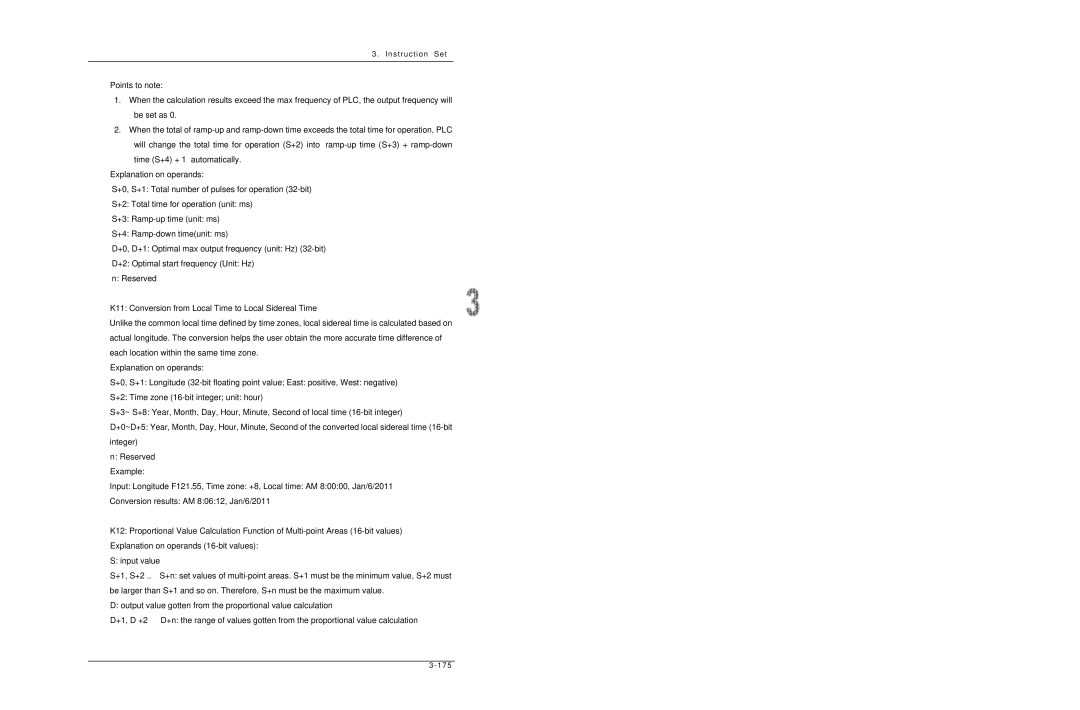
3. Instruction Set
Points to note:
1.When the calculation results exceed the max frequency of PLC, the output frequency will be set as 0.
2.When the total of
time (S+4) + 1” automatically. Explanation on operands:
S+0, S+1: Total number of pulses for operation
S+2: Total time for operation (unit: ms)
S+3:
S+4:
D+0, D+1: Optimal max output frequency (unit: Hz)
D+2: Optimal start frequency (Unit: Hz)
n: Reserved
K11: Conversion from Local Time to Local Sidereal Time
Unlike the common local time defined by time zones, local sidereal time is calculated based on actual longitude. The conversion helps the user obtain the more accurate time difference of each location within the same time zone.
Explanation on operands:
S+0, S+1: Longitude
S+2: Time zone
S+3~ S+8: Year, Month, Day, Hour, Minute, Second of local time
D+0~D+5: Year, Month, Day, Hour, Minute, Second of the converted local sidereal time
n: Reserved Example:
Input: Longitude F121.55, Time zone: +8, Local time: AM 8:00:00, Jan/6/2011
Conversion results: AM 8:06:12, Jan/6/2011
K12: Proportional Value Calculation Function of
S: input value
S+1, S+2….. S+n: set values of
be larger than S+1 and so on. Therefore, S+n must be the maximum value. D: output value gotten from the proportional value calculation
D+1, D +2 … D+n: the range of values gotten from the proportional value calculation
3 - 1 7 5
